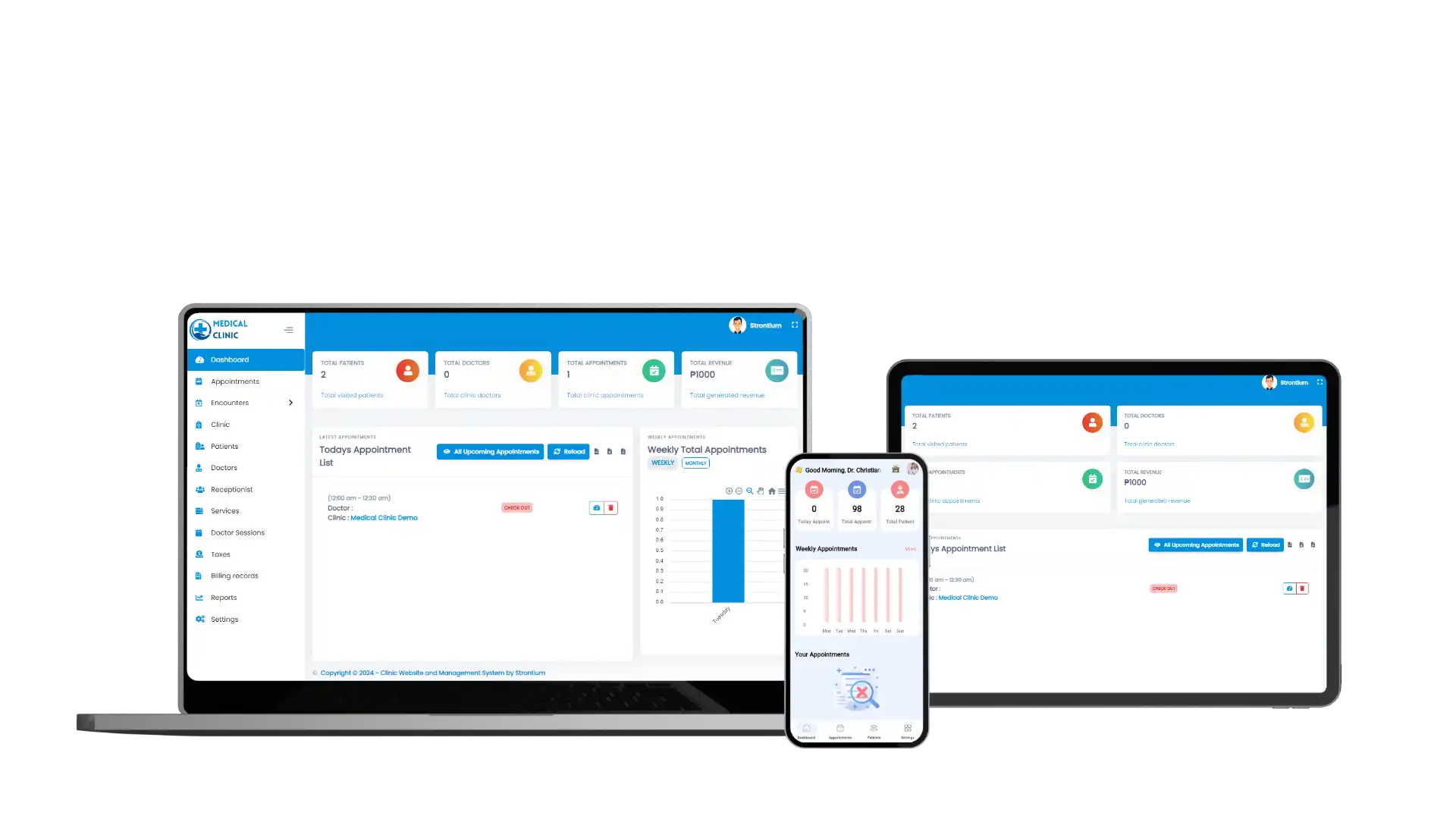In the ever-evolving world of healthcare, efficient clinic management is crucial for delivering top-notch patient care and optimizing operational workflows. EZ Clinic, our all-in-one solution, encompassing both web and mobile applications, is designed to streamline routine tasks and enhance overall clinic efficiency. This article provides a detailed glossary to help you understand key terms and phrases related to our innovative platform.
1. Clinic Management
Clinic management involves overseeing the day-to-day operations of a healthcare facility. This includes managing appointments, patient records, billing, and ensuring the smooth running of clinic operations.
2. All-in-One Solution
An all-in-one solution integrates various functionalities into a single platform. For clinics, this means combining scheduling, billing, patient management, and other essential tasks into one cohesive system.
3. Website
A website is a collection of web pages accessible over the Internet. For clinics, a website serves as a digital front, offering information about services, appointments, and contact details.
4. Cloud App
A cloud app is a software application that operates on a cloud computing platform rather than being installed locally on a device. This allows users to access the app from any internet-enabled device.
5. Web App
A web app is an application that runs in a web browser. Unlike traditional software, it doesn’t require installation and can be accessed from any device with an internet connection.
6. Mobile App
A mobile app is designed for use on mobile devices like smartphones and tablets. It provides functionality tailored to smaller screens and touch interfaces.
7. Digitizes and Automates
To digitize and automate means converting manual processes into digital formats and using technology to perform tasks automatically. This improves efficiency and reduces human error.
8. Routine Clinic Management Tasks
Routine clinic management tasks include daily operations such as scheduling appointments, billing, and managing patient records. Automating these tasks can significantly enhance clinic efficiency.
9. Doctor’s Appointment
A doctor’s appointment is a scheduled meeting between a patient and a healthcare provider for medical consultation, treatment, or follow-up.
10. Scheduling
Scheduling refers to the process of planning and organizing appointments, meetings, and other time-sensitive tasks within a clinic.
11. Invoicing
Invoicing is the process of generating and sending bills to patients or insurance companies for medical services provided.
12. Clinic Patients
Clinic patients are individuals who visit the clinic for medical care or consultation. Managing patient information and appointments efficiently is crucial for providing quality care.
13. User-Friendly Interface
A user-friendly interface is designed to be easy to use and navigate, ensuring that users can operate the system with minimal training.
14. Cloud-Based Accessibility
Cloud-based accessibility allows users to access the clinic’s software and data from any device with an internet connection, offering flexibility and convenience.
15. Data Security
Data security involves protecting sensitive information from unauthorized access or breaches. Ensuring data security is crucial for maintaining patient confidentiality and compliance with regulations.
16. Scalable Solution
A scalable solution can grow and adapt with the clinic’s needs. It allows for the addition of features or expansion of the system as the clinic’s requirements change.
17. Digitize and Automate Tasks
To digitize and automate tasks means to convert manual processes into digital formats and use automated systems to handle these tasks efficiently.
18. Increase Clinic Efficiency
Increasing clinic efficiency involves optimizing processes and systems to enhance productivity, reduce errors, and improve overall operational performance.
19. Clinic Billing and Invoicing
Clinic billing and invoicing involve managing the financial aspects of medical services, including generating bills and processing payments.
20. Patient Portal
A patient portal is an online platform that allows patients to access their health information, schedule appointments, and communicate with their healthcare providers.
21. Telemedicine
Telemedicine provides remote healthcare services through digital platforms, allowing consultations and follow-ups without requiring patients to visit the clinic in person.
22. Mobile App Access
Mobile app access refers to using a mobile application to interact with clinic services, manage appointments, and access health information from a smartphone or tablet.
23. Android
Android is an operating system developed by Google for mobile devices. It supports a wide range of apps available through the Google Play Store.
24. iOS
iOS is Apple’s operating system for mobile devices like iPhones and iPads. It provides access to apps through the Apple App Store.
25. Tablet
A tablet is a portable computing device with a touchscreen interface. It is used for various tasks, including managing clinic data and accessing mobile apps.
26. iPad
The iPad is a line of tablets developed by Apple, known for its iOS operating system and wide range of applications designed for productivity and entertainment.
27. Electronic Health Records (EHR)
Electronic Health Records (EHR) are digital versions of patients’ medical histories, including diagnoses, treatment plans, and test results. EHRs facilitate better patient care and data management.
28. Landing Page
A landing page is a web page designed to convert visitors into leads or customers. It typically contains targeted content and a call to action relevant to the user’s interests.
29. Consultation
A consultation is a meeting between a patient and a healthcare provider to discuss symptoms, diagnoses, and treatment options.
30. E-Prescription
E-prescription is the process of electronically sending prescription orders from healthcare providers to pharmacies, improving accuracy and efficiency.
31. Multi-Site Clinics
Multi-site clinics operate multiple locations or branches, requiring a centralized system to manage operations, scheduling, and patient data across all sites.


